The Lords of Salem
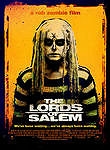
Believe it or not, horror cinema is in pretty good health. We can bang on at length about the grim state of the remake-and-formula-saturated mainstream (though last year both The Woman in Black and The Cabin in the Woods respectively rode the Hogwarts and Whedon Expresses to both critical and box office success), but dip your head below the surface and there’s no shortage of interesting, original films from talented directors that.. well, they aren’t making a lot of money, but they do exist, and that’s a start.
The problem is that while a lot of these films are good, none of them are quite good enough to gather the momentum needed for a breakout hit. The rapidly growing pile of So So Closes includes recent efforts like Excision (thought-provoking, but not scary), American Mary (fascinating, but aimless), The Bay (stylistically groundbreaking, but too minor), The Innkeepers (actually pretty great all round) and now The Lords of Salem, Rob Zombie’s most original, ambitious and niche effort to date.
Sheri Moon Zombie stars as Heidi, co-host of a popular heavy metal radio show in Salem, Massachusetts and resident of an apartment block with the creepiest hallway wallpaper in history. When the show receives and subsequently plays a vinyl record by a mysterious band known as The Lords, Heidi starts having visions that may or may not be linked to John Hawthorne (Andrew Prine) and Margaret Morgan (Meg Foster); a legendary Salem witch hunter and the head of the coven with which he was obsessed.
The Lords of Salem is graced by a strong cast, largely excellent cinematography and inventive art direction, but as is the case with any Rob Zombie joint almost all of the key talking points concern Rob Zombie. This time around, his directorial touchstones are grand, and to his credit there are moments when he manages to meet them head-on. His slow, centre-point-focused zooms and long pans are reminiscent of the most unsettling work of Stanley Kubrick (most notably 2001 and Eyes Wide Shut) and Peter Greenaway, as are some of the more elaborately composed set-piece shots; the aforementioned hallway, a gothic amphitheatre, the interior of a huge cathedral.
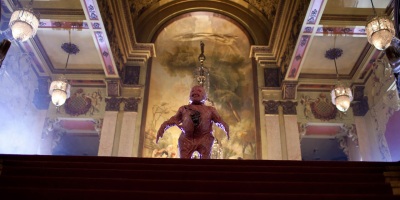
But while Zombie’s visual and technical progressions are notable and thrilling, his real prowess still lies in his understanding of how to terrify, rather than simply scare. The Lords of Salem carries an almost constant sense of dread; scares are frequent, subtle and rarely signposted, and the mood is maintained with a sickly colour palette, intentionally uncomfortable dialogue, and John 5’s ever-present score. Music is particularly well used, with jump moments being met with gut-level bass throbs rather than blaring horns, and choral bombast – specifically, Mozart’s stunningly fit-for-purpose Requiem – heralding the bigger scenes. Zombie knows the drill – small scares should unsettle, set pieces should put the fear of God in you.
However, these moments of elegance and power are undermined by sporadic moments where the film feels cheap, or silly – and these moments aren’t sporadic enough to be ignored. In particular, the flashbacks to 17th century Salem are hysterical and hokey, and come close to derailing the cumulative effect built by the creeping horror of the contemporary scenes. Similarly, it’s not hard to see what Zombie was trying to do with the morning zoo sound affects and exagerated patter during the radio shows, but it’s more annoying than authentic, and doesn’t help to build empathy for the otherwise engaging characters.
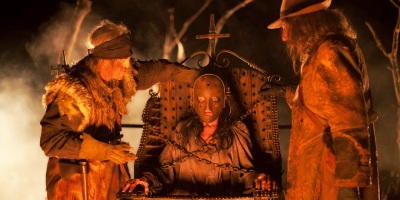
And while it’s admirable that Zombie is ambitious with his imagery, some of it feels over his head. For every moment of effective design and thematic resonance, like a gore-spewing priest or – most effectively – a gibbet slowly emerging from the darkness above Heidi’s bed, there’s a witch licking blood off a newborn baby, or a woman riding naked on a goat, and it takes a truly great director to make something like that unsettling rather than comical. Often, the result is a random mess rather than the intended collage of horror; in particular, the beautifully established, nerve-shredding climax – The Lords’ reveal, in a huge theatre – gives way to a bizarre, flip-book montage that feels less like a nightmare and more like a whiteboard after a brainstorm.
The Lords of Salem isn’t brilliant, and it’s not hard to imagine some of the stranger moments compelling unengaged viewers to call it the ‘worst film evah’, or whatever. But it sets its director apart as a true craftsman who makes films because he loves and understands the genre; there’s a real chance that, with time, he could make something genuinely great.

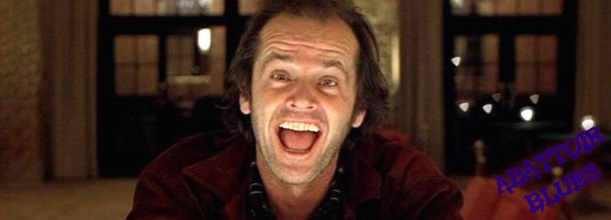

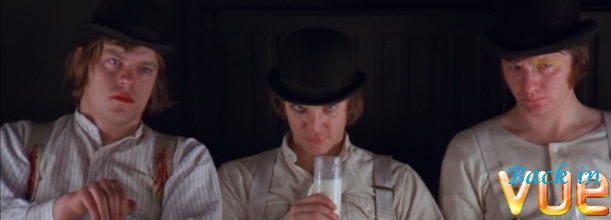
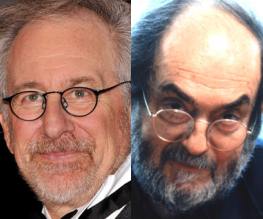
Recent Comments